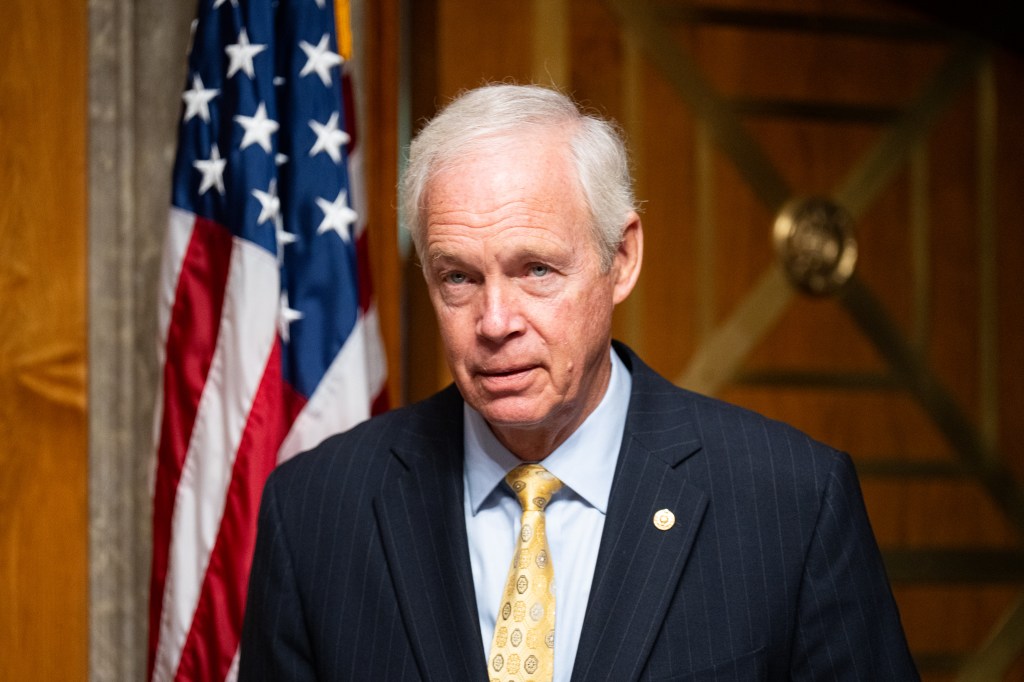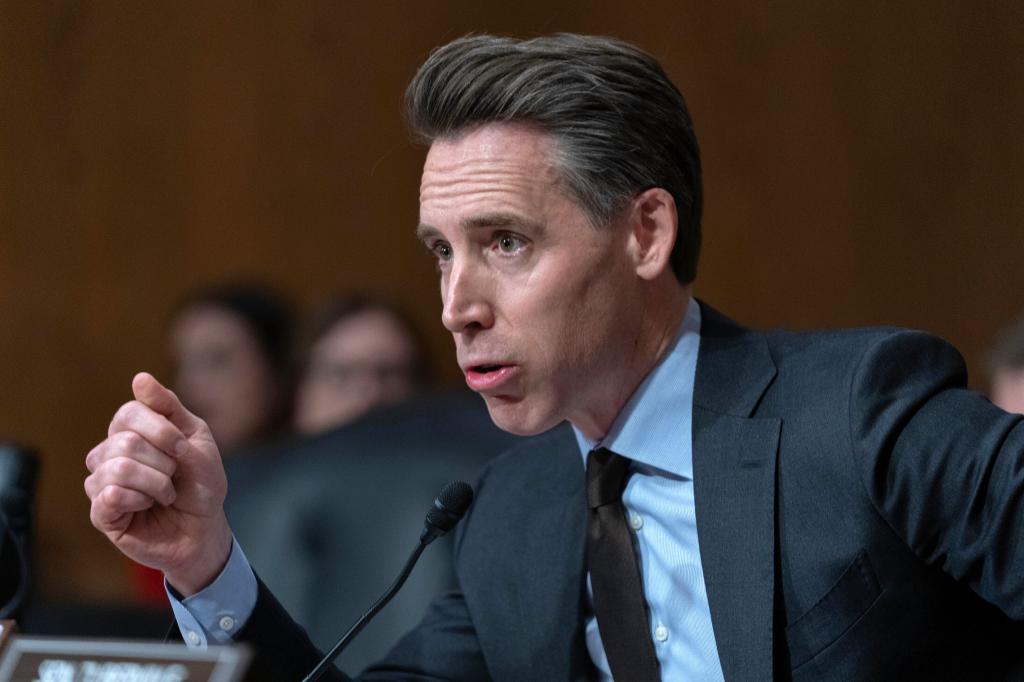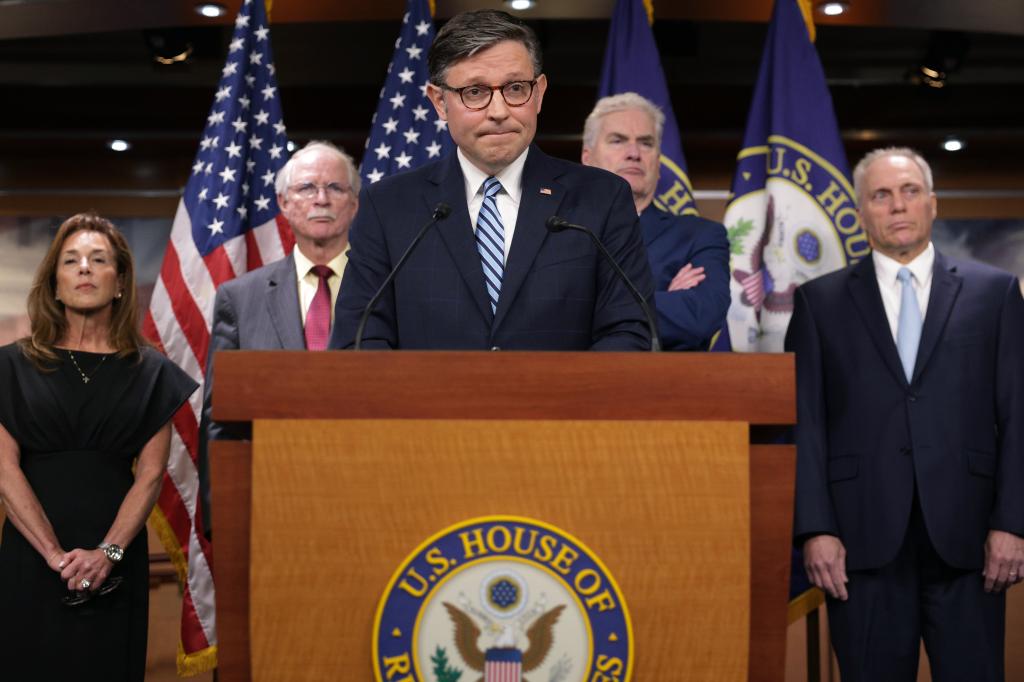House Republicans advance sweeping cuts, Medicaid reform after key GOP senator warned of Trump veto
House Republicans passed Medicaid reform and a $900 billion spending cut out of committee Wednesday after a marathon multi-day session marking up that portion of President Trump’s “big, beautiful” bill — despite a key senator warning the commander in chief would veto it.
The House Energy and Commerce Committee greenlit the measure in a party-line, 30-24, vote after fielding 246 amendments across 26 hours of deliberation.
Now the package heads to the House Budget Committee for a scheduled Friday markup, meant to knit together other components of Trump’s marquee legislative package.
The Energy and Commerce Committee proposal included a mandated 80-hour-per-month work requirement for able-bodied adults ages 19 to 64 to receive Medicaid, the federal assistance program for poor people.
Under the plan, beneficiaries with incomes over the federal poverty line ($15,650) have to pay up to $35 per medical service and states would be barred from paying providers more than Medicare, which could impact rural hospitals.
The sweeping reform to the 60-year-old program has raised alarm among some Senate Republicans, including Sen. Josh Hawley (R-Mo.).
“This bill is not going to become law in its current form, not least because President Trump won’t sign it,” ahead of the committee vote.
New — GOP Sen. Josh Hawley attacks Medicaid cuts in House GOP’s ‘big beautiful bill’ and says it must change to become law
— Manu Raju (@mkraju)
“This is real Medicaid benefit cuts. I can't support that. No Republican should support that. We're the party of the working class. We need to act like it.”
“I’ve talked to him about this personally, multiple times. He has been crystal clear in public, too — no, Medicaid benefit cuts, we need to get a tax cut to working people, not raise their taxes when it comes to health care, not take away their health care benefits.”
The mammoth bill is intended to be Trump’s signature legislative achievement of the year and includes an extension of the 2017 Tax Cuts and Jobs Act, no taxes on tips, no taxes on overtime pay, beefed up border security spending, and increased defense spending.
Hawley said he could support work requirements but told CNN the $35 charge was a red line for him.
“I don’t like the idea of decreasing funding for rural hospitals. I’m worried that the House bill goes way too far in that regard. I also don’t like what is basically a hidden tax on working poor people,” he argued, “this whole idea [that] we’re going to charge them now additional co-pays in order to access health care, I have to say, it seems like a tax to me.
“If you want to do work requirements, I’m all for that. I bet every Republican and I bet most Americans would agree with that,” Hawley continued. “The House goes much, much, much further than that. This is real Medicaid benefit cuts.”
The Missouri Republican had penned a proposal over the weekend and publicly ripped the plan as “reverse class warfare.”
Medicaid, which receives both federal and state funding, took in roughly $618 billion from Uncle Sam in fiscal year 2024.
If the GOP-backed plan went into effect, at least 8.6 million Americans could lose health insurance and Medicaid could face $715 billion in cuts over a 10-year stretch, Congressional Budget Office estimate requested by Democrats.
Republicans on the Energy and Commerce panel sought to find middle ground, refraining from passing much deeper cuts requested by fiscal hawks.
House Freedom Caucus Chair Andy Harris (R-Md.), for instance, objected to the work requirements taking effect in 2029.
Others in the Senate, including Sens. Rand Paul (R-Ky.) and Ron Johnson (R-Wis.), have complained that the “big, beautiful” plan doesn’t do enough to rein in the deficit.
“The One Big Beautiful Bill will almost certainly add to our deficits and debt,” Johnson published Monday. “That’s why I can’t support this bill as it’s currently being discussed and doubt that it will pass the Senate.”
The tax component of the bill is projected to cost $3.7 trillion over the next 10 years, according to an assessment from the Joint Committee on Taxation.
Republicans are still working on producing text to hit their goal of at least $1.5 trillion in total spending reductions over a 10-year window.
Meanwhile, on the House side, blue-state Republican members are feuding with leadership over plans to increase the state and local tax deduction (SALT) cap from $10,000 to $30,000 for individual taxable incomes of $400,000 or less.
Those moderate GOPers, largely from New York, have been battling for a much higher SALT cap, which has further complicated the tax portion of the bill.
GOP leadership is hoping to get the whole package to Trump’s desk by the Fourth of July.



















